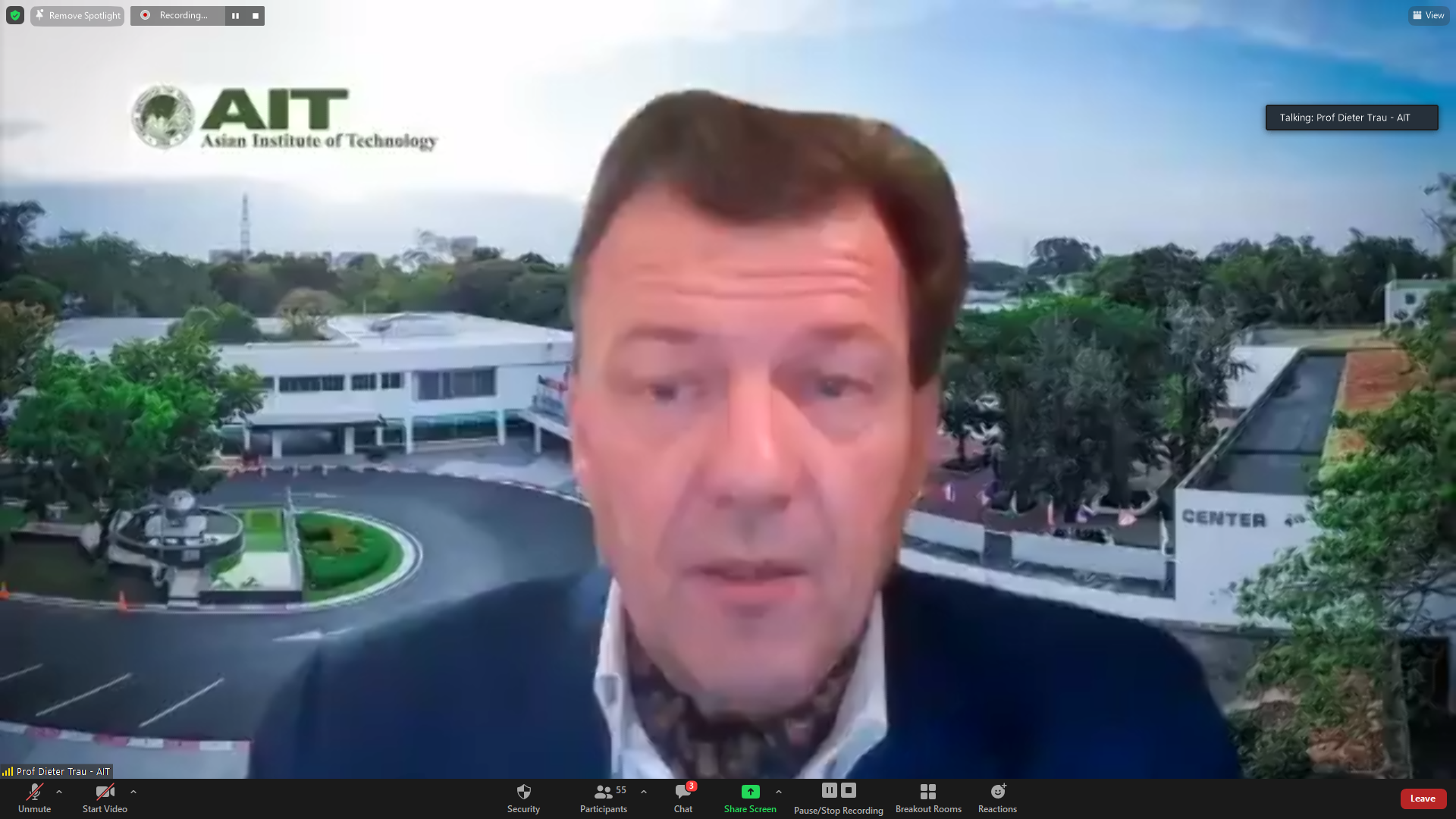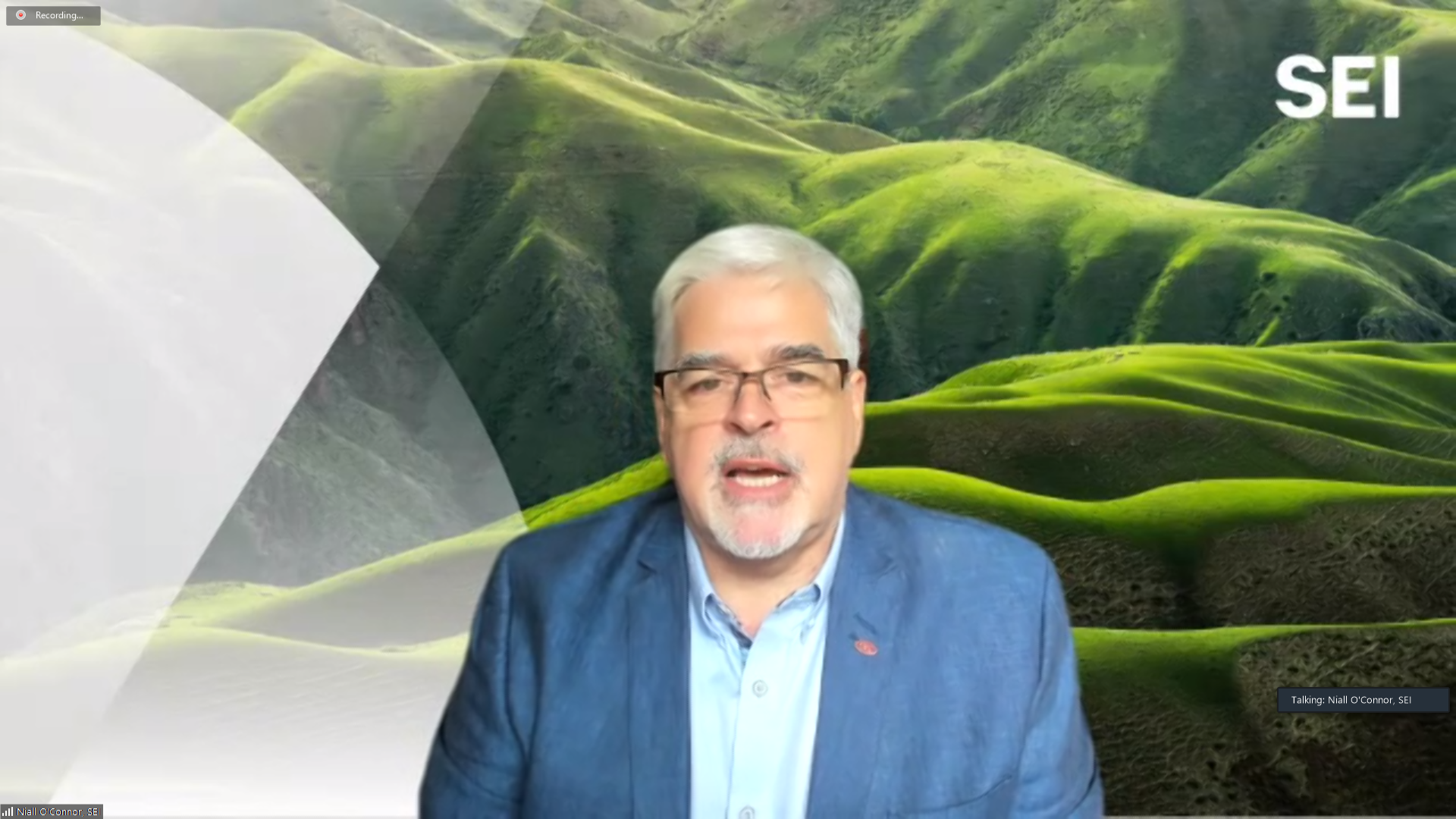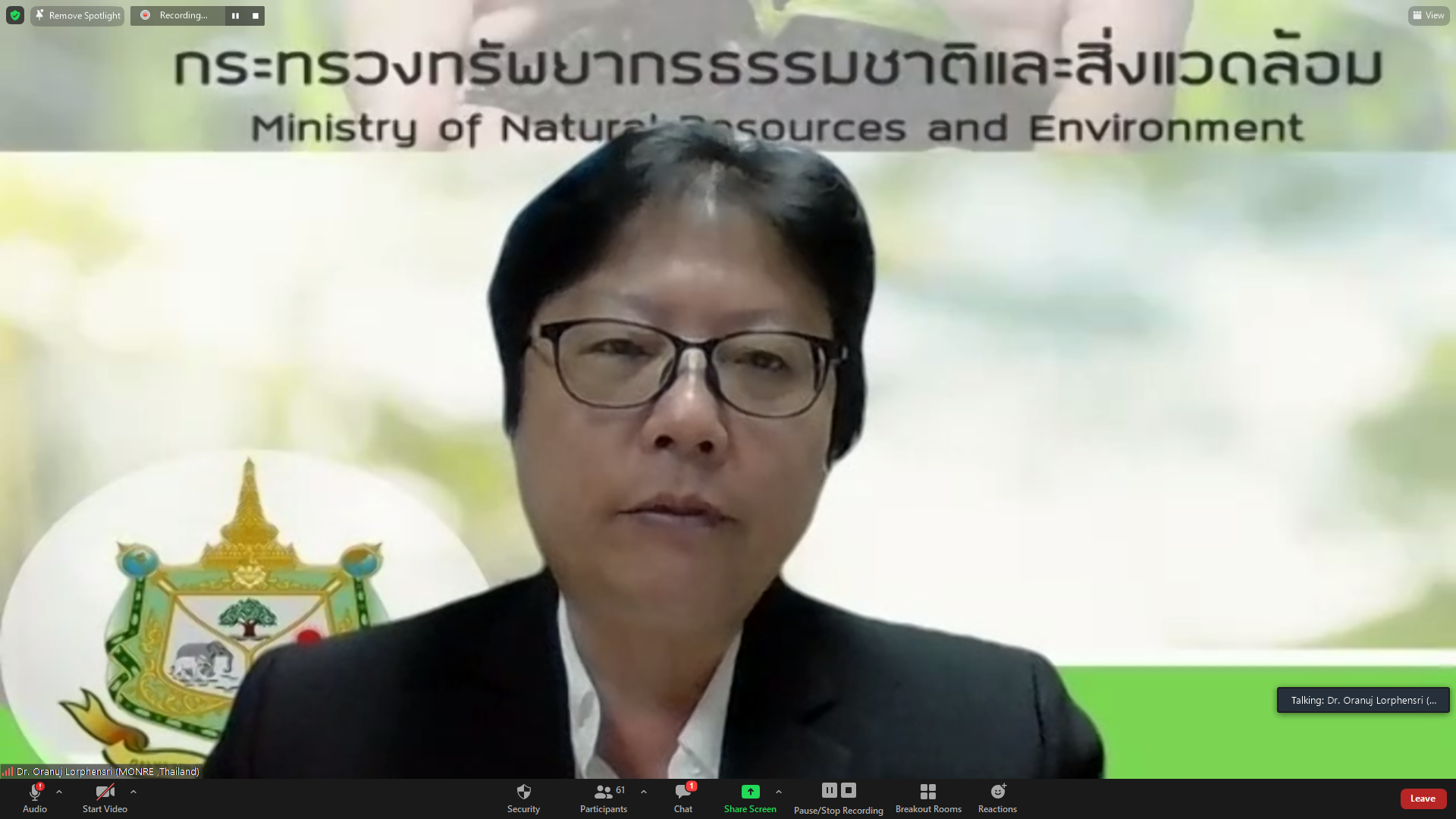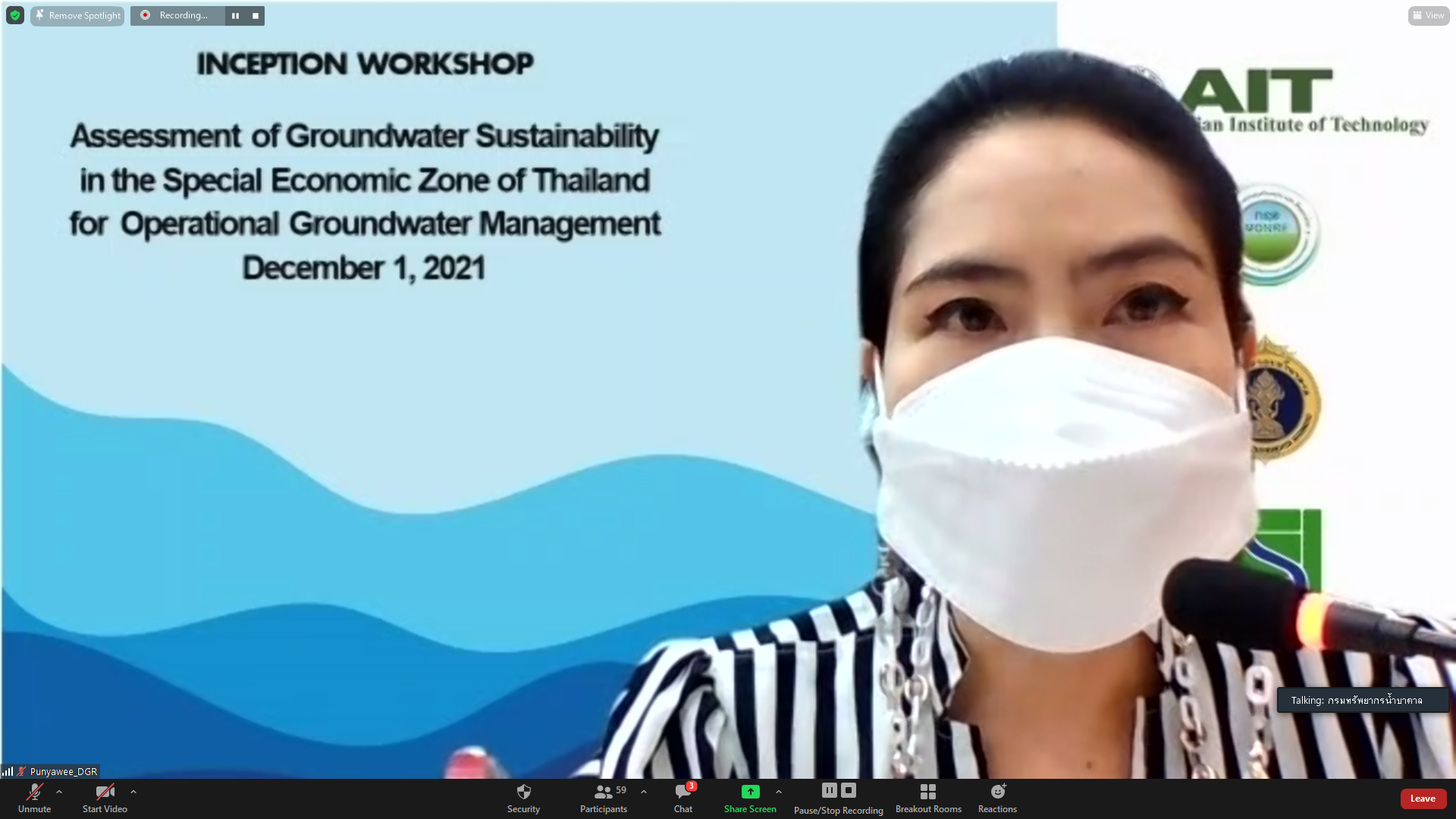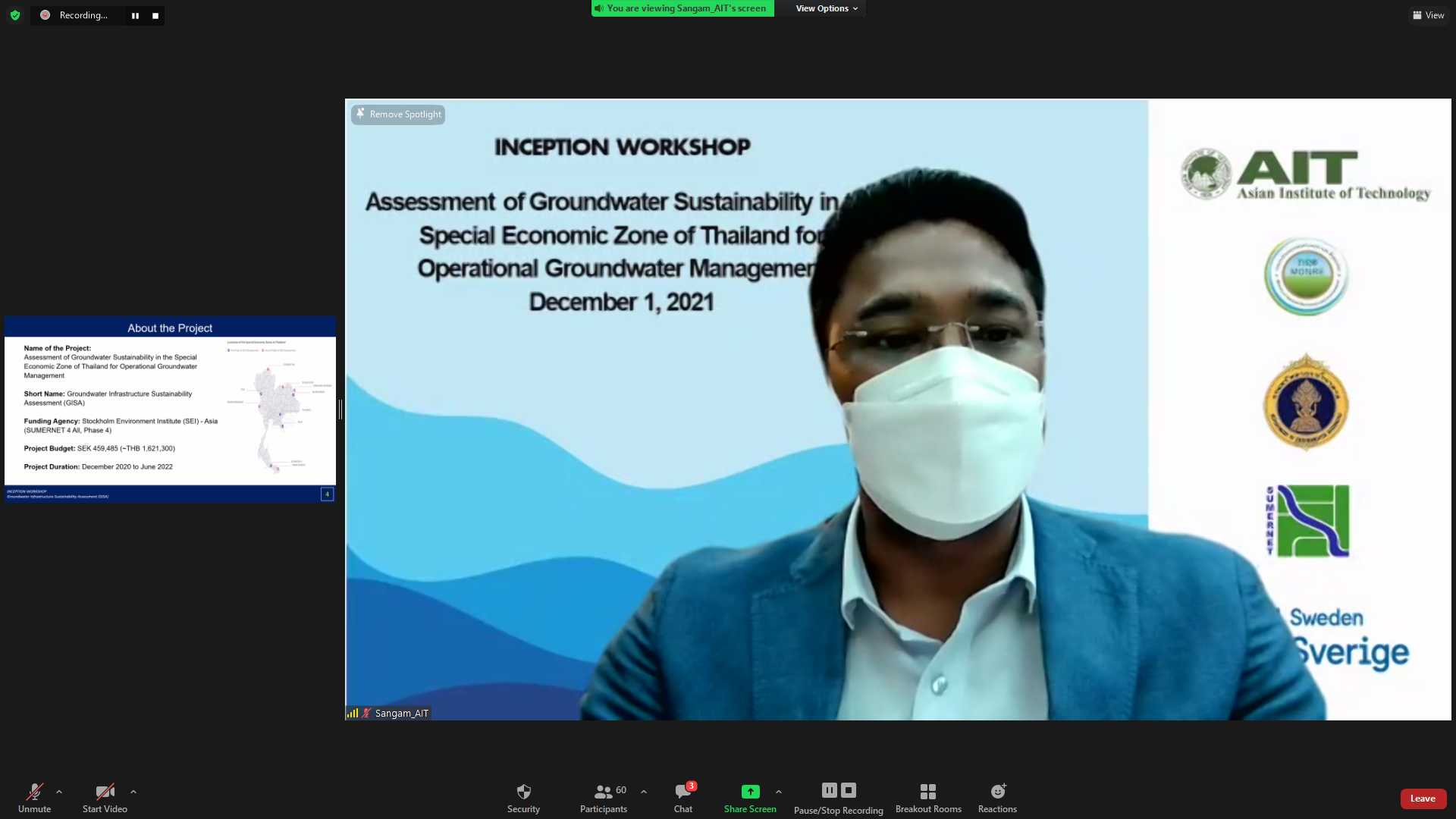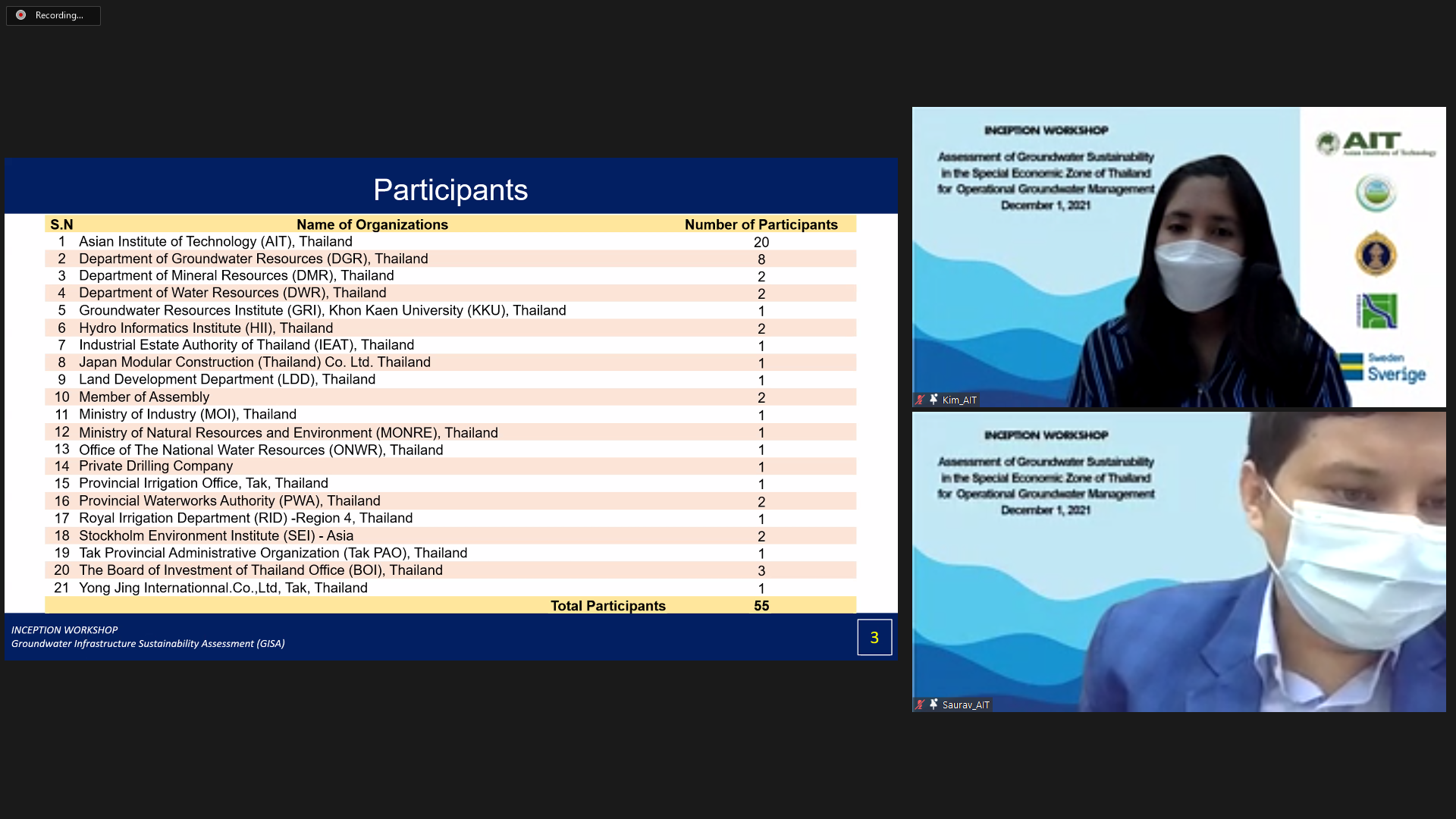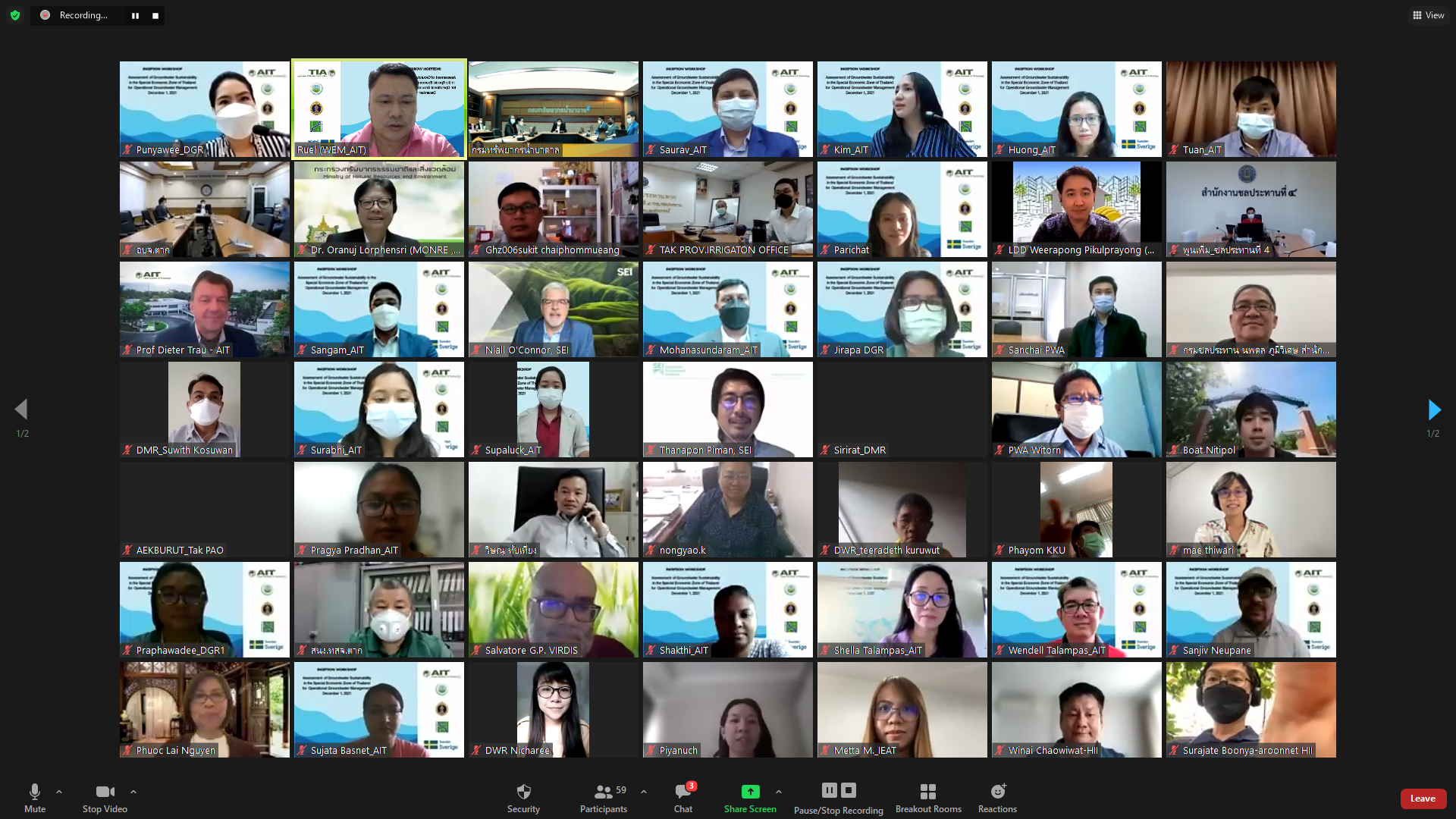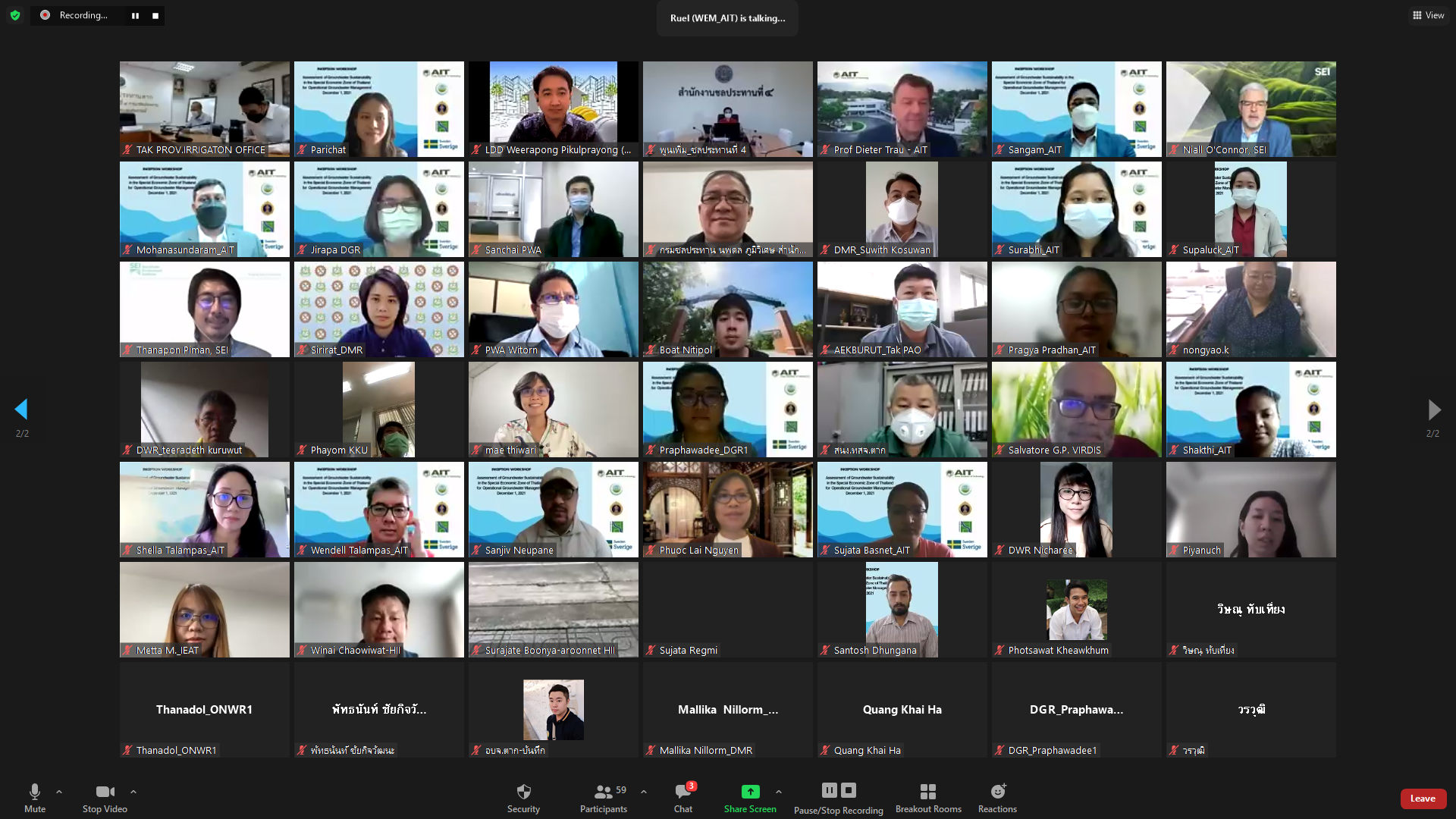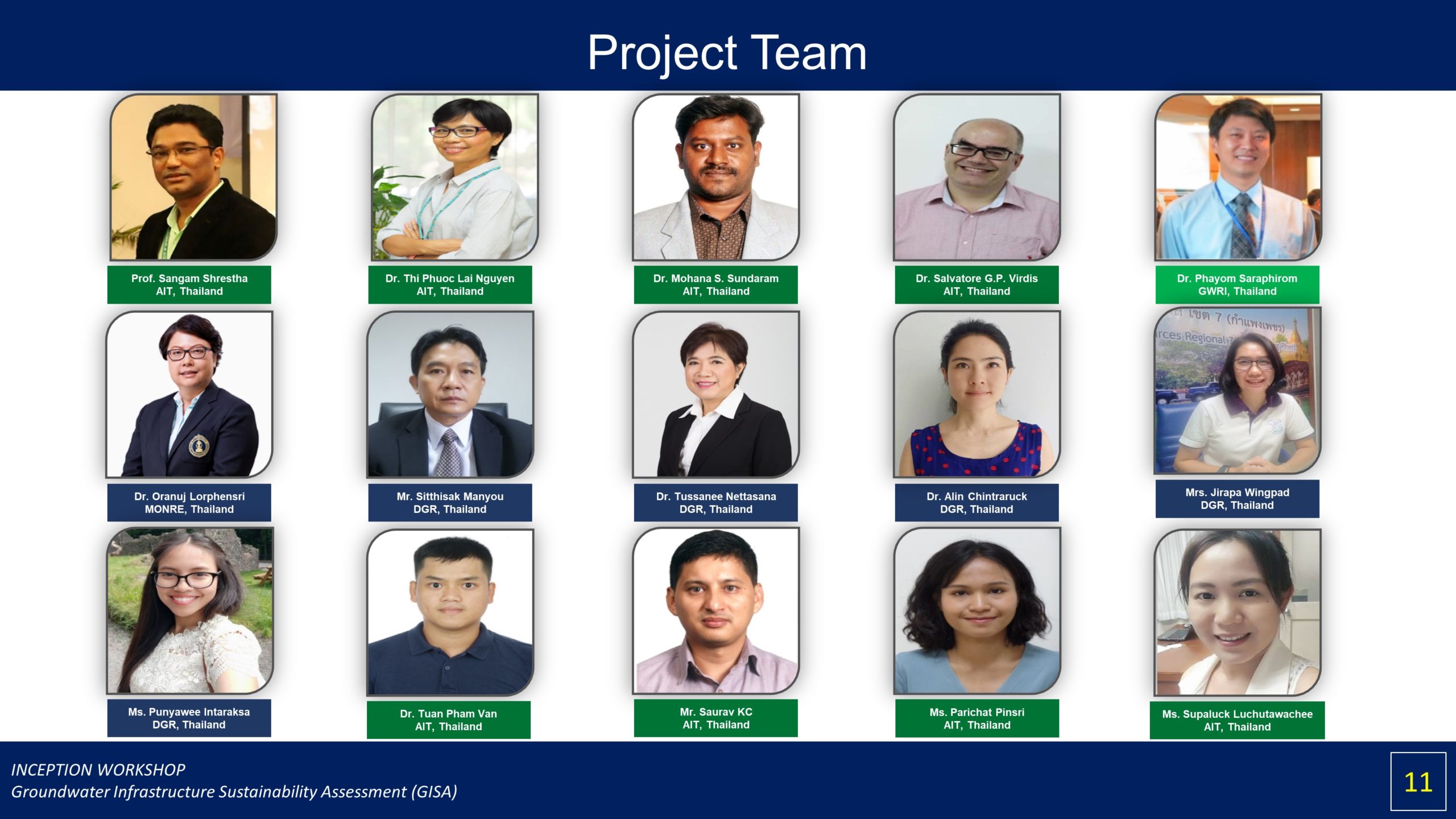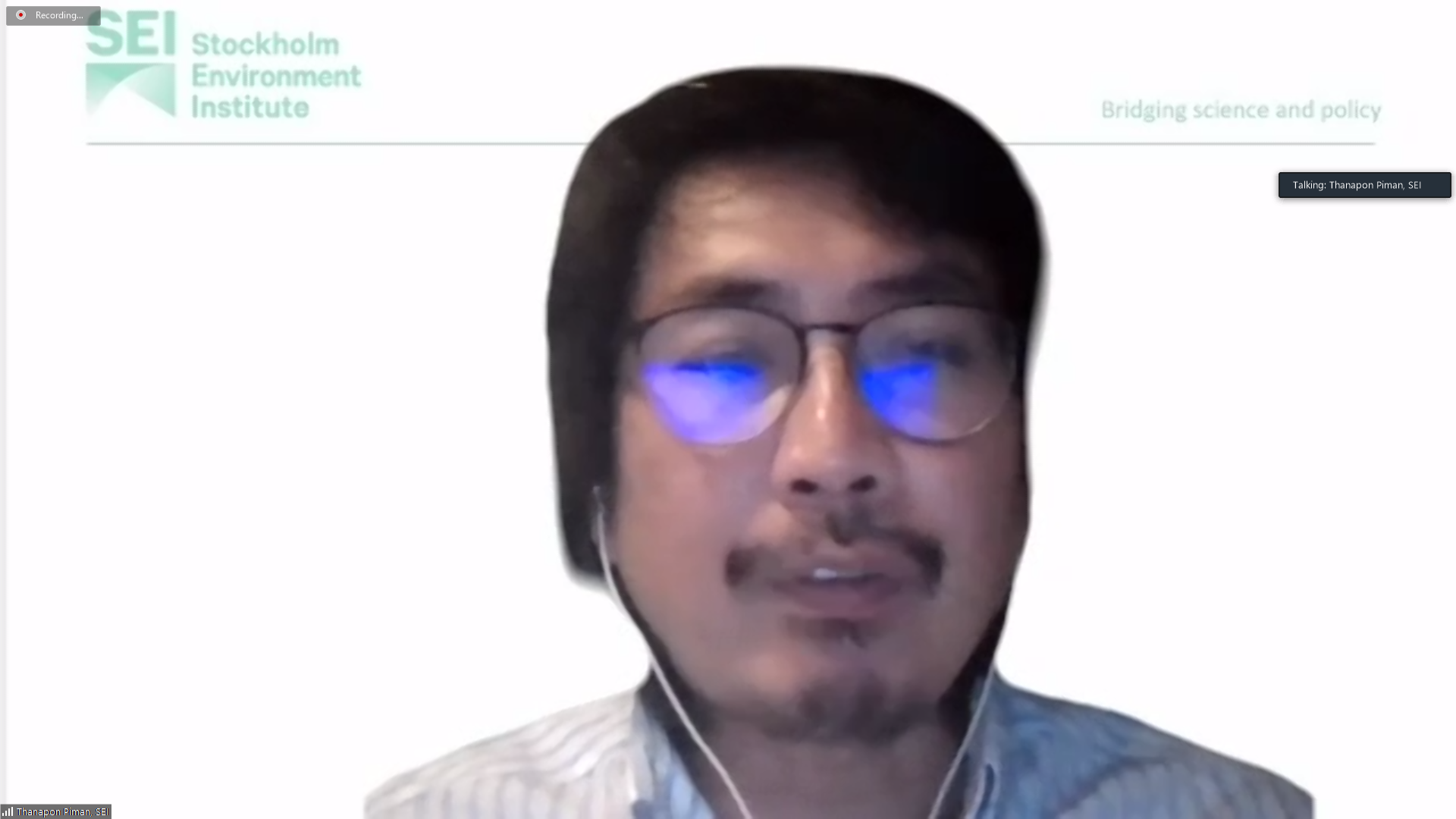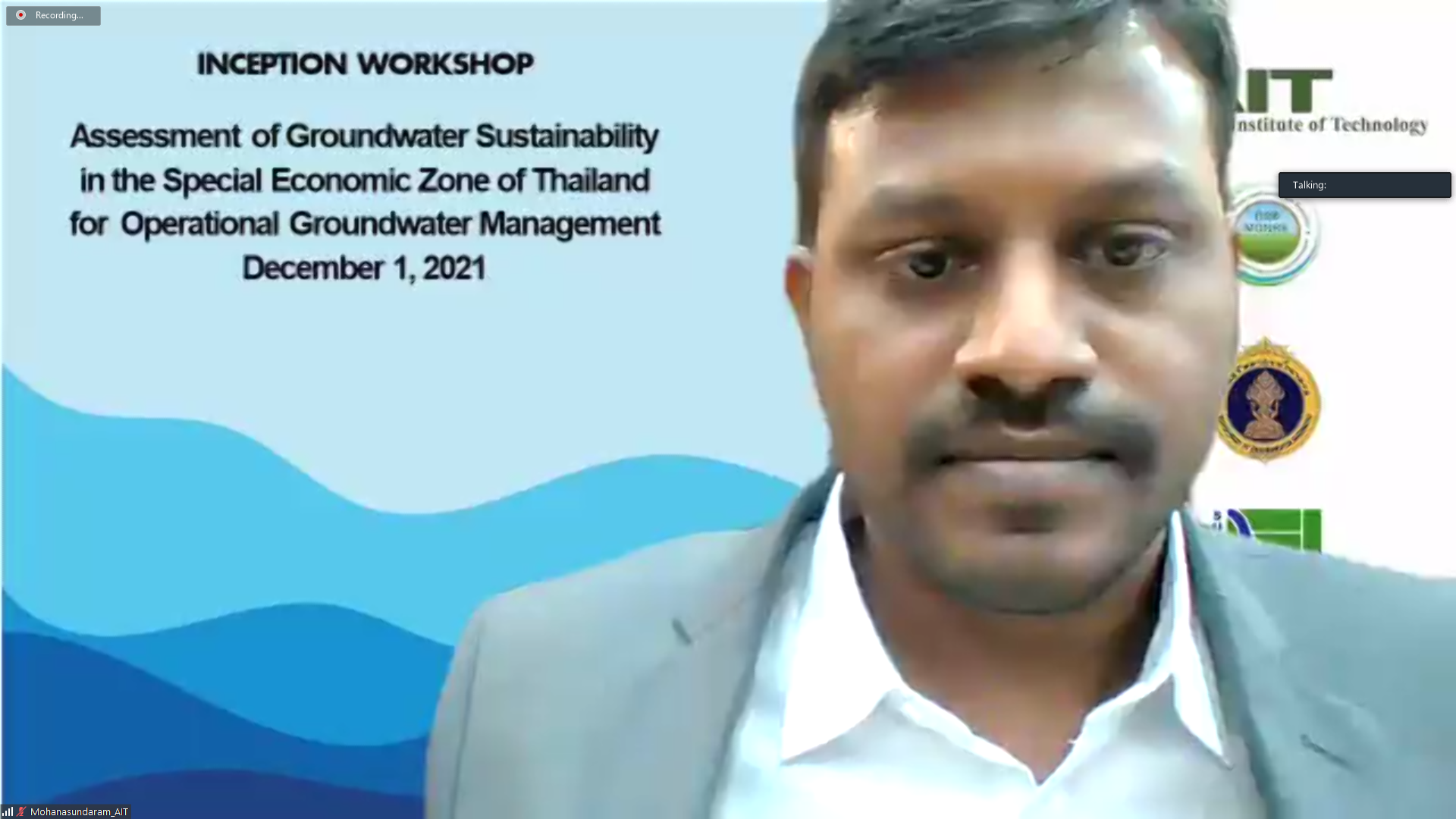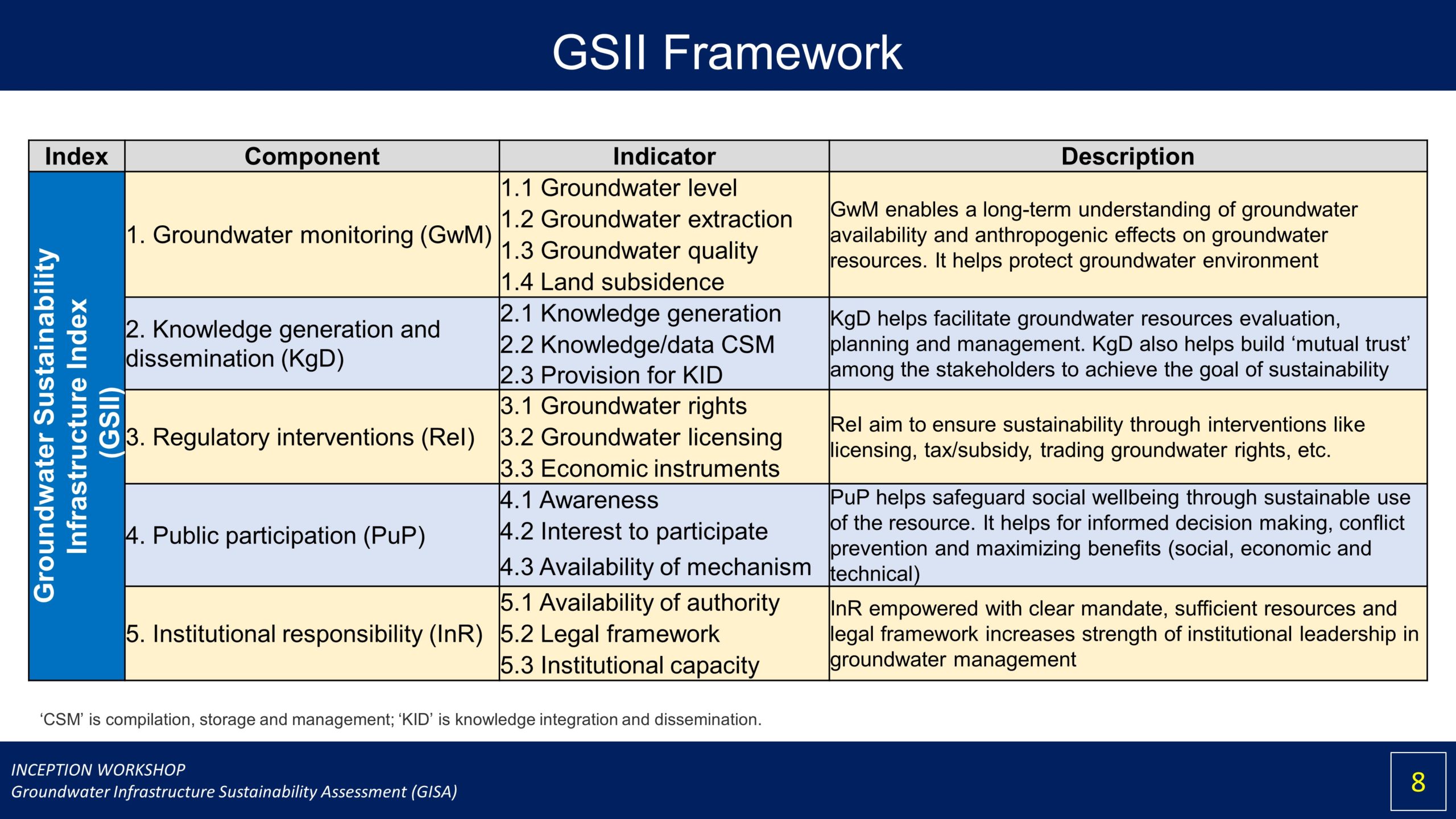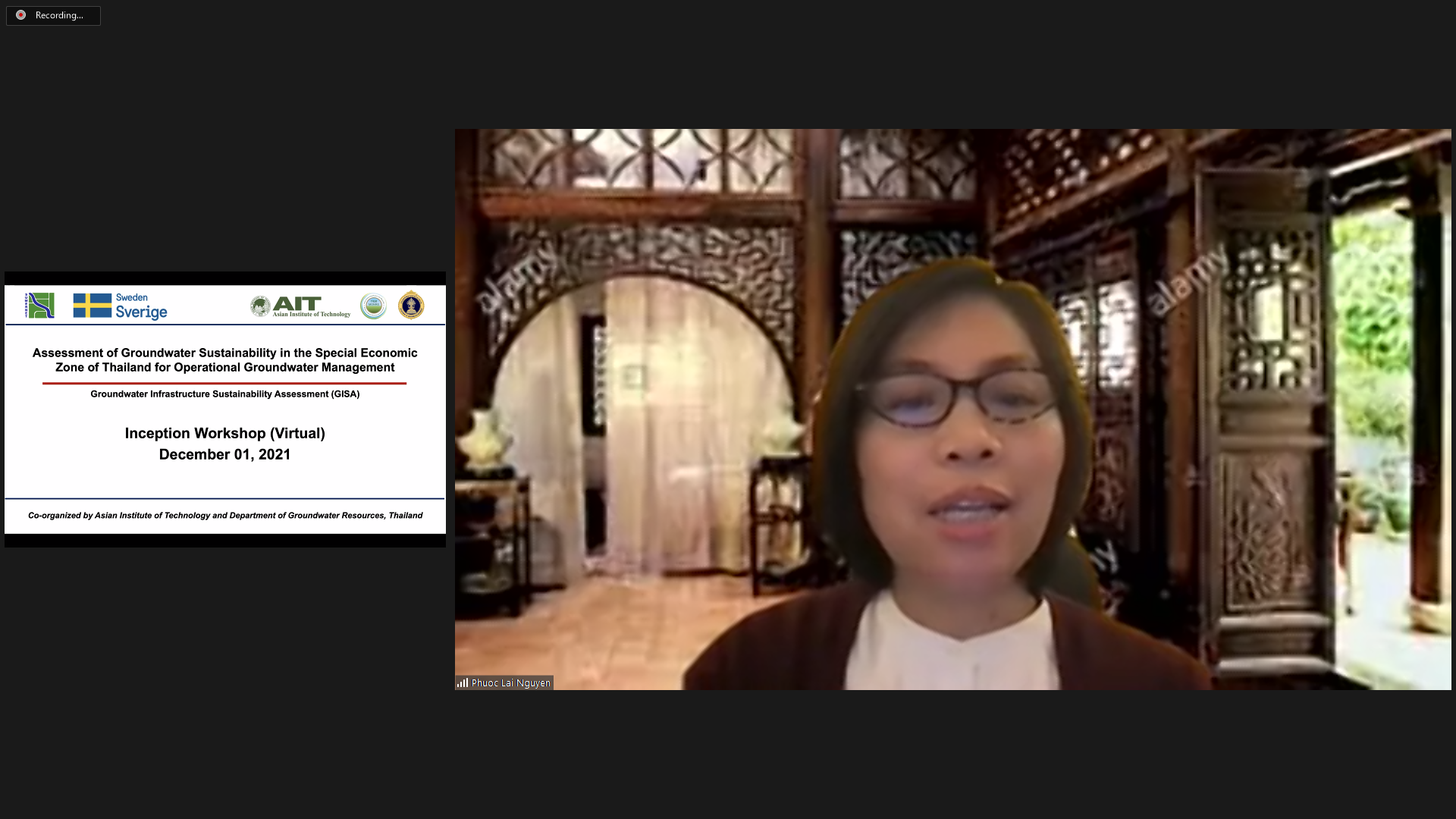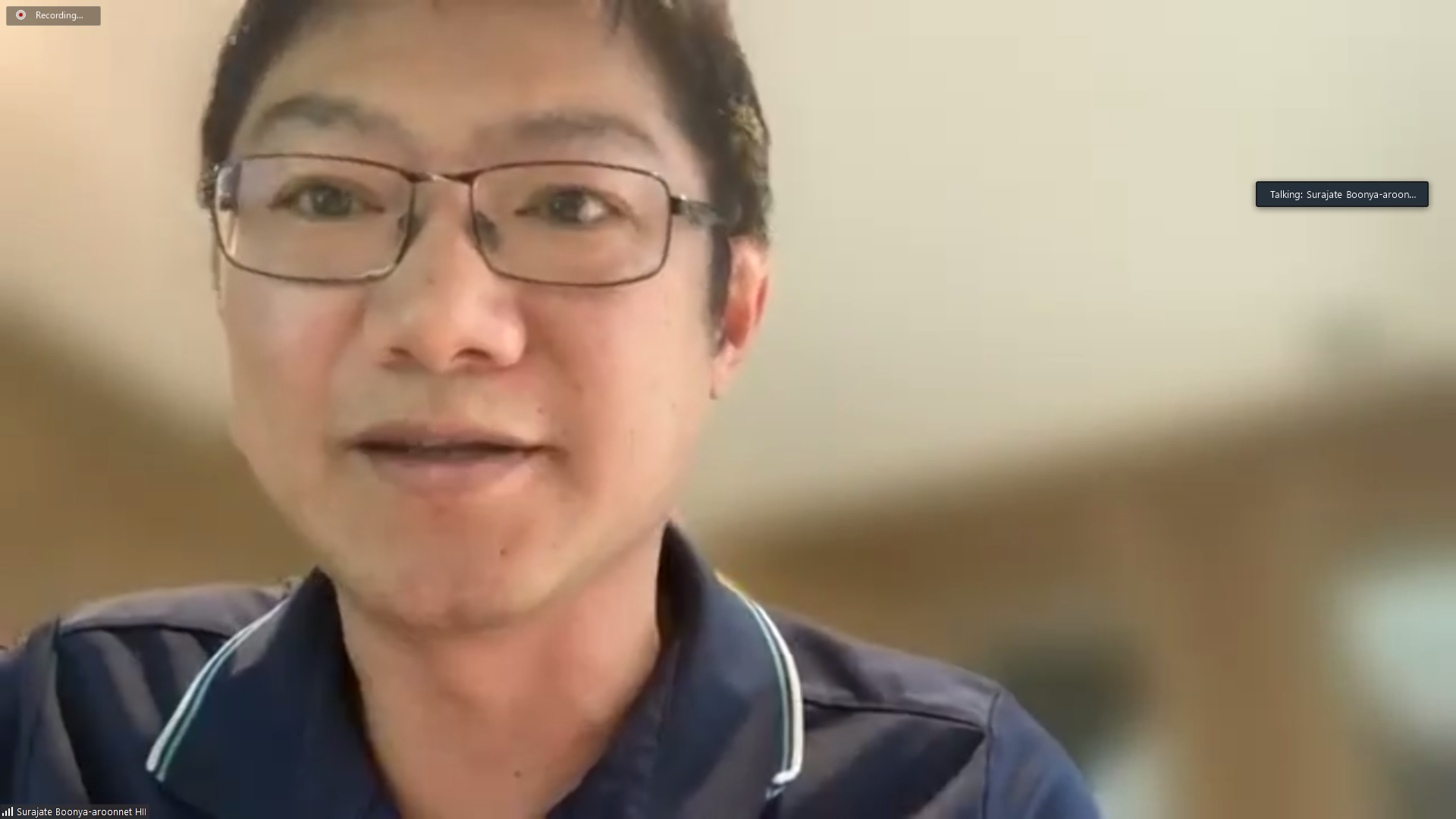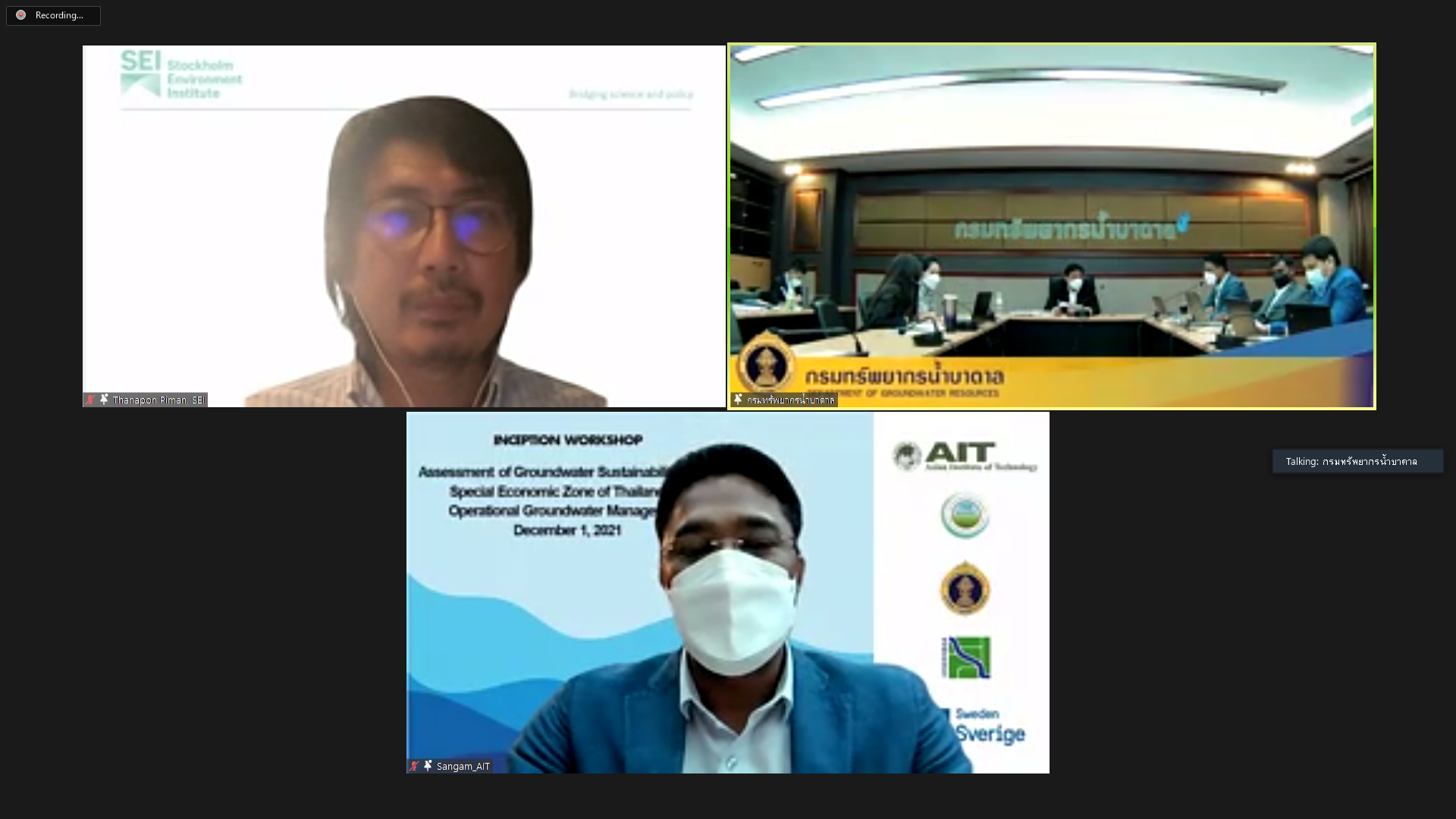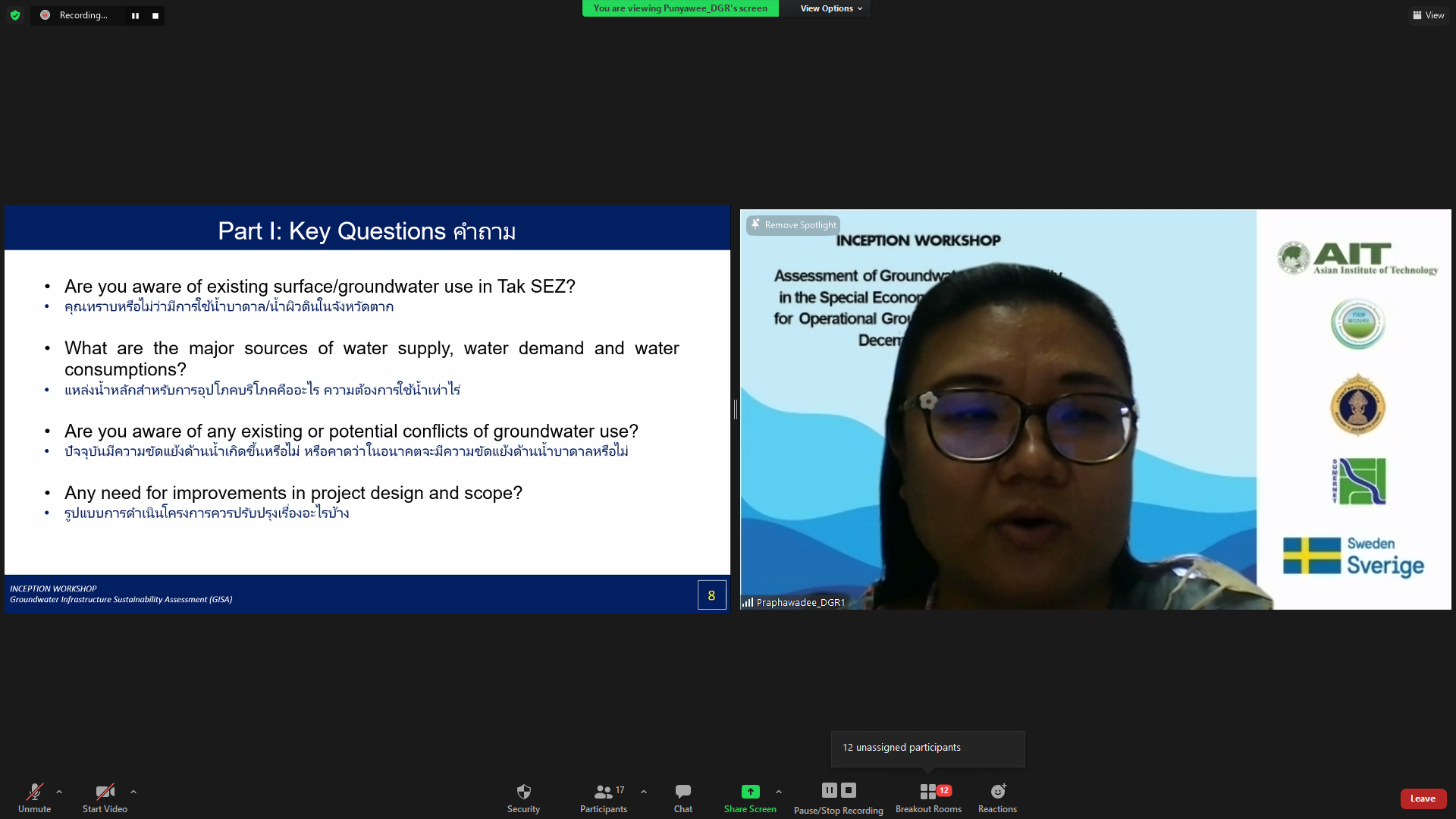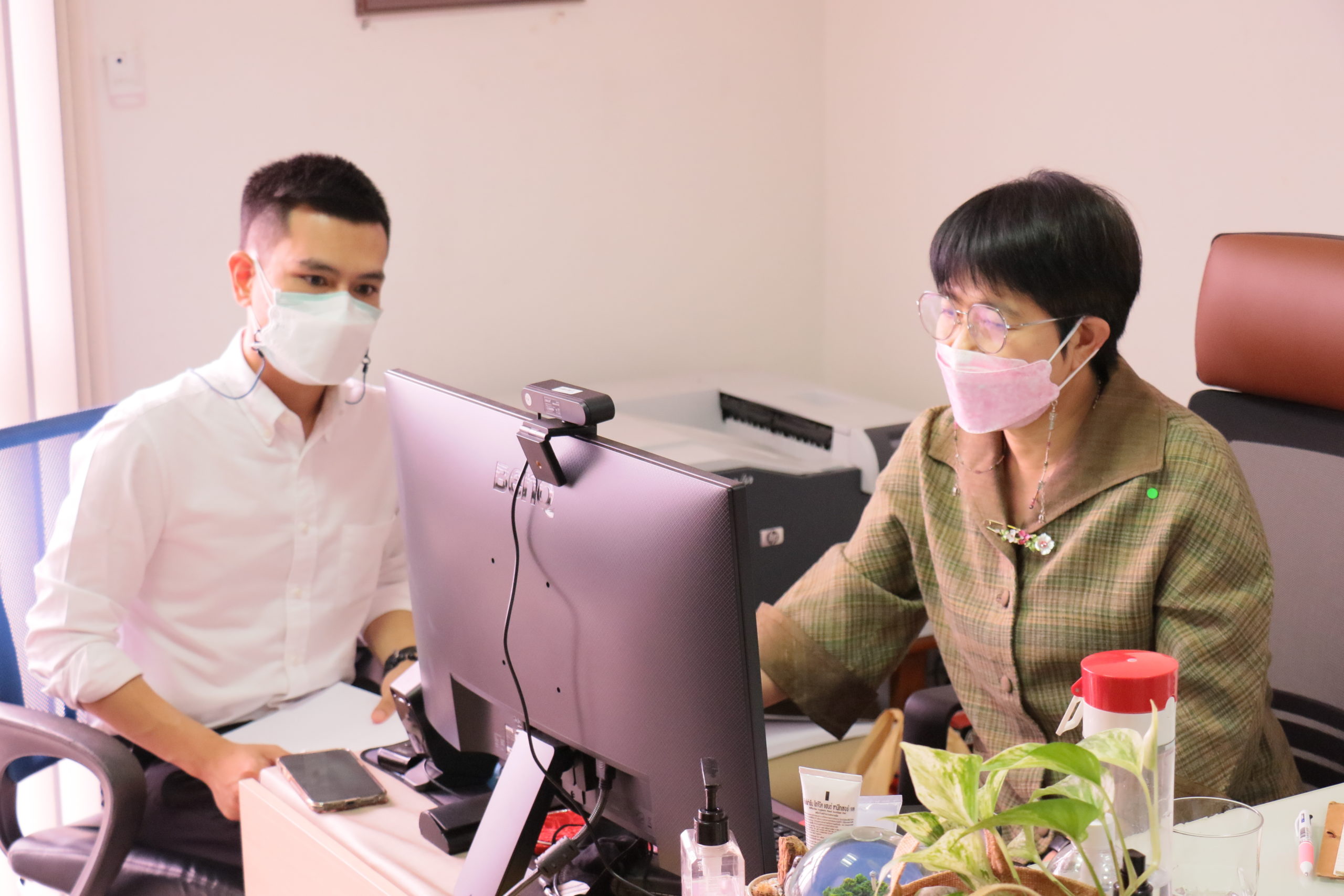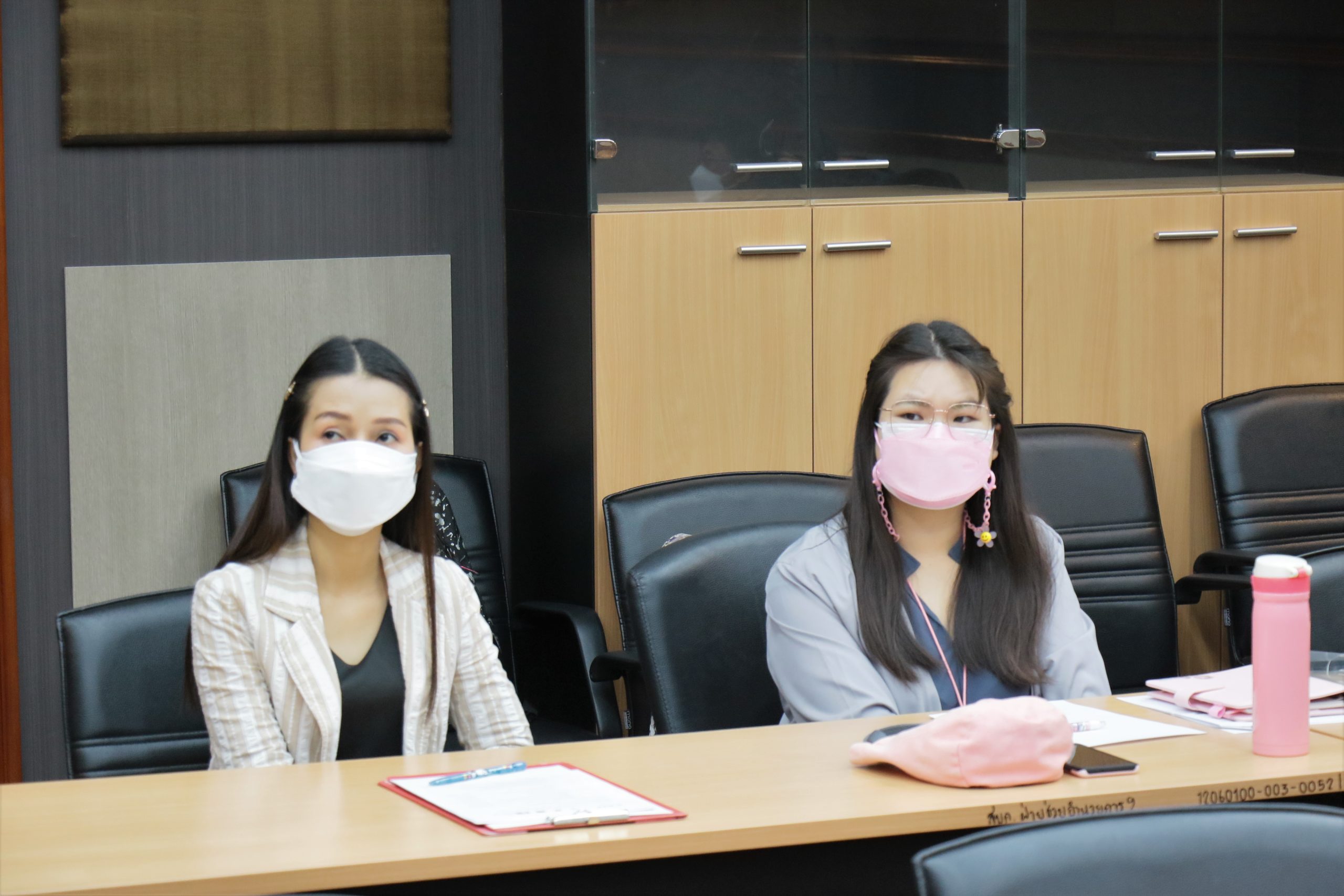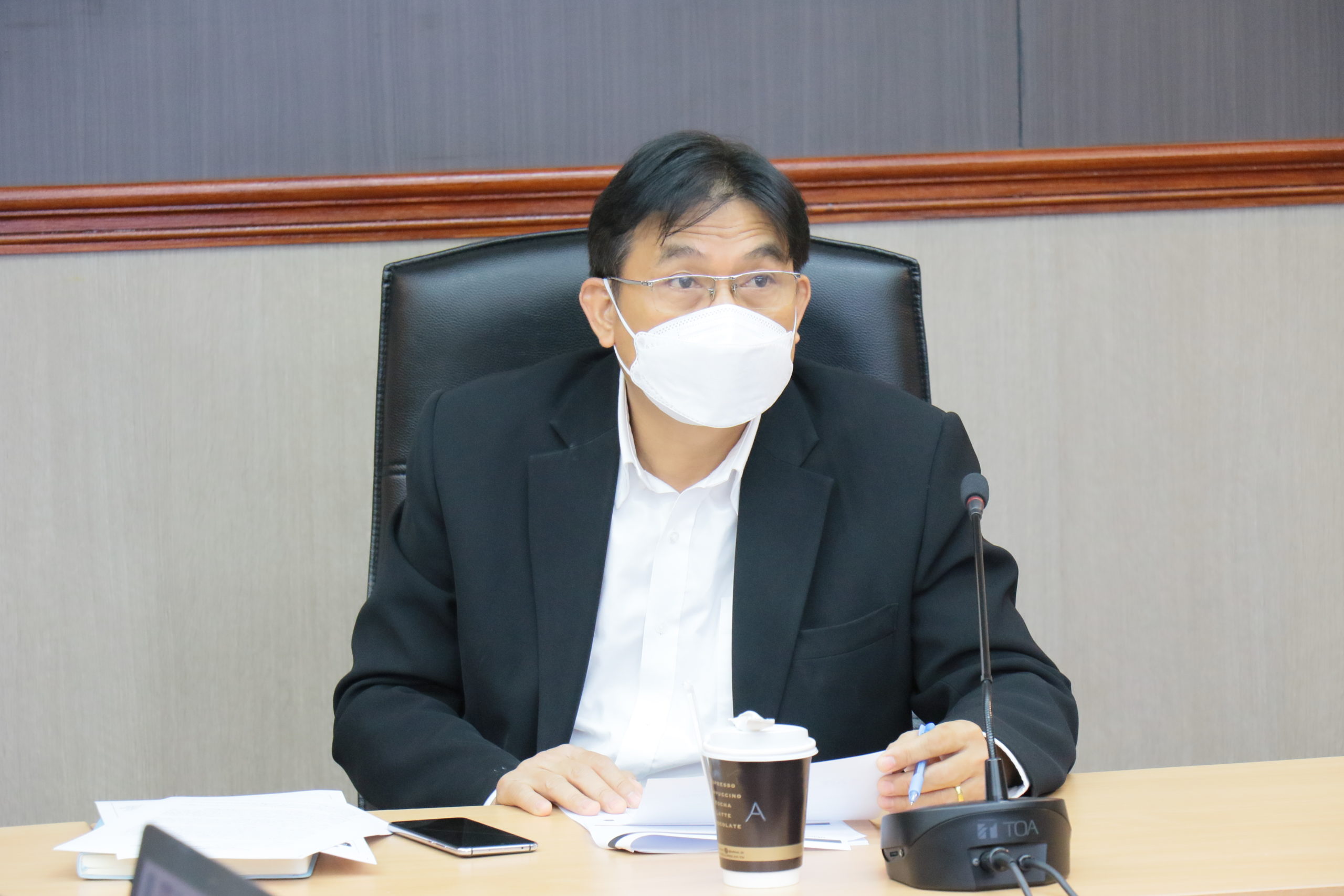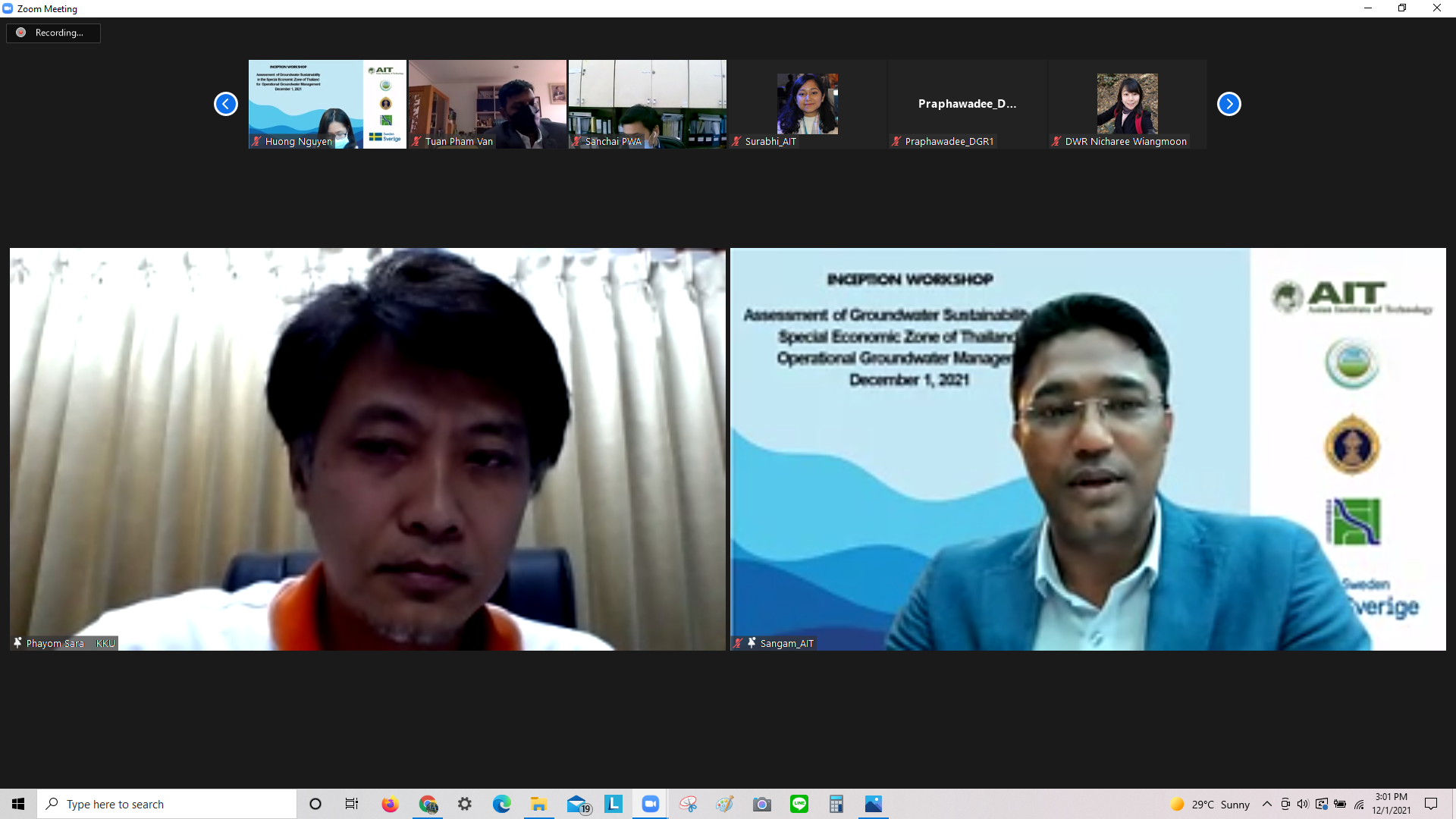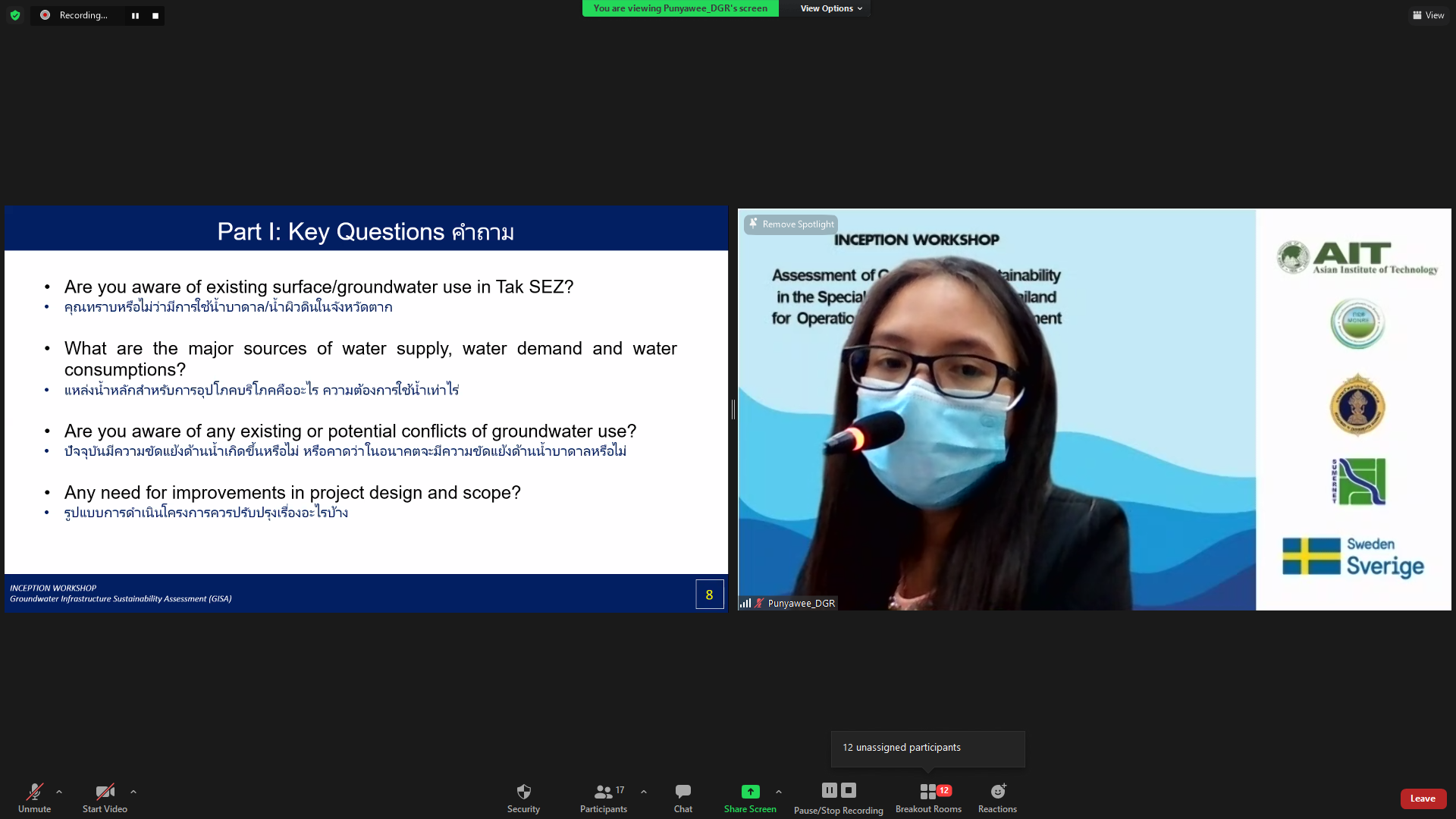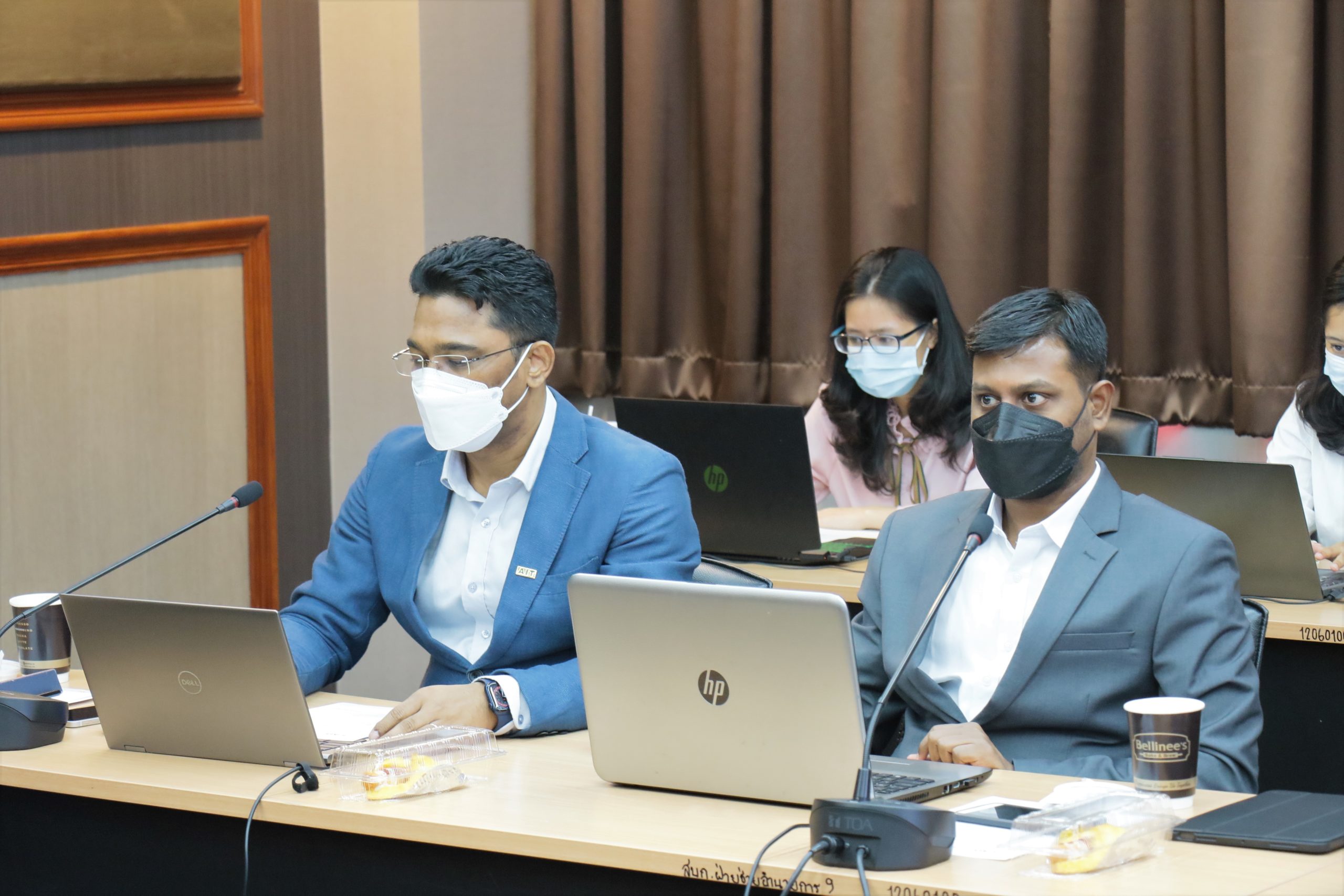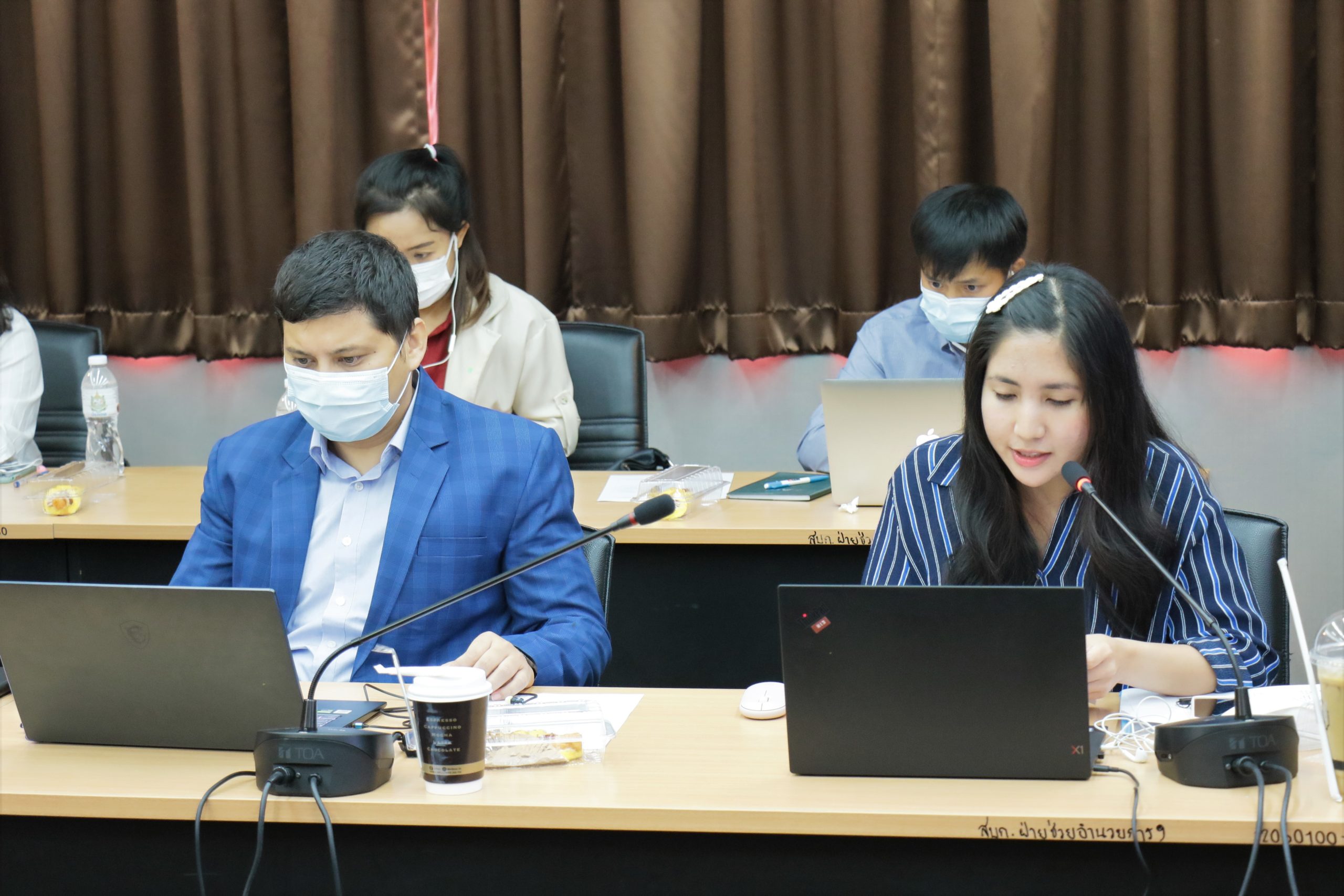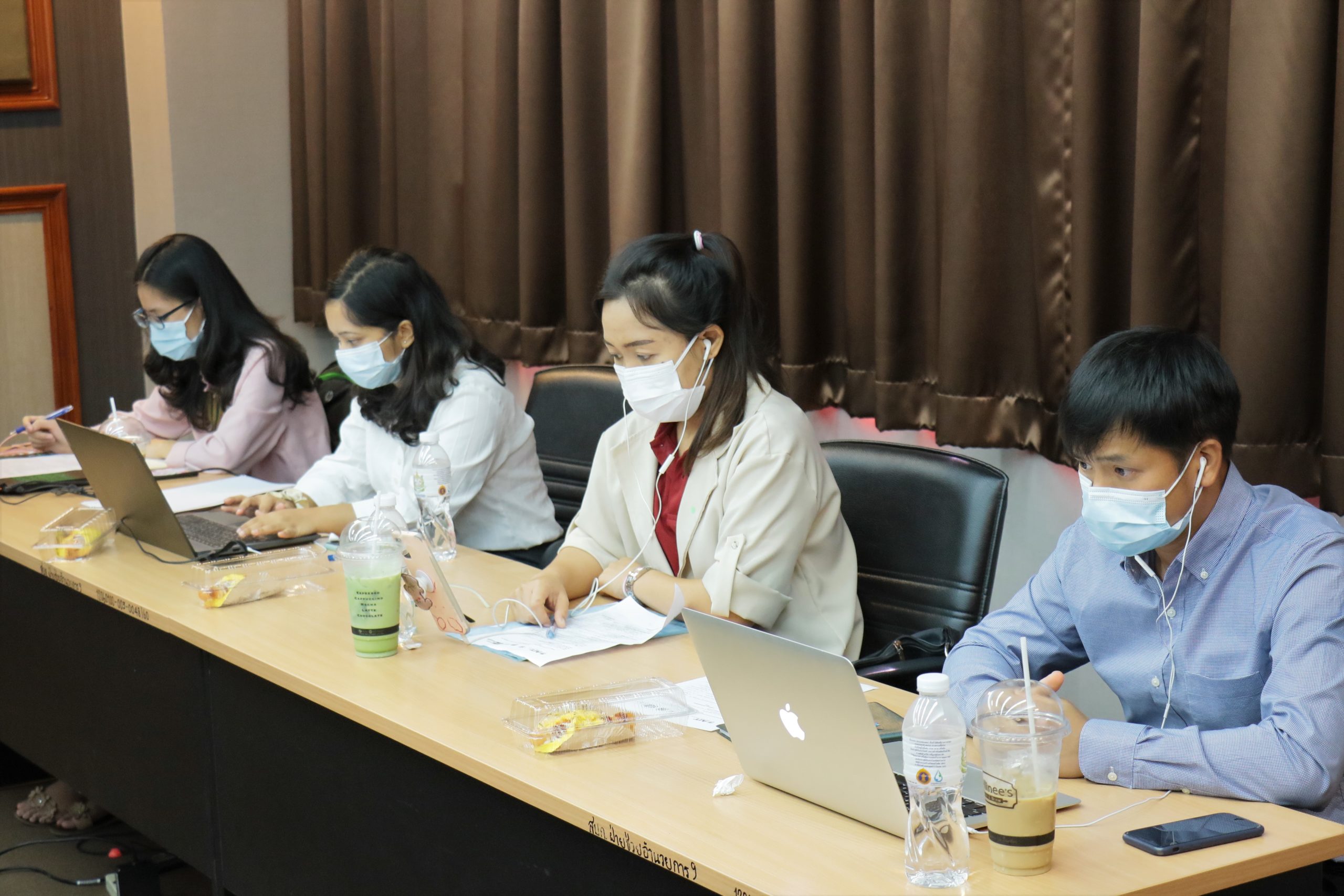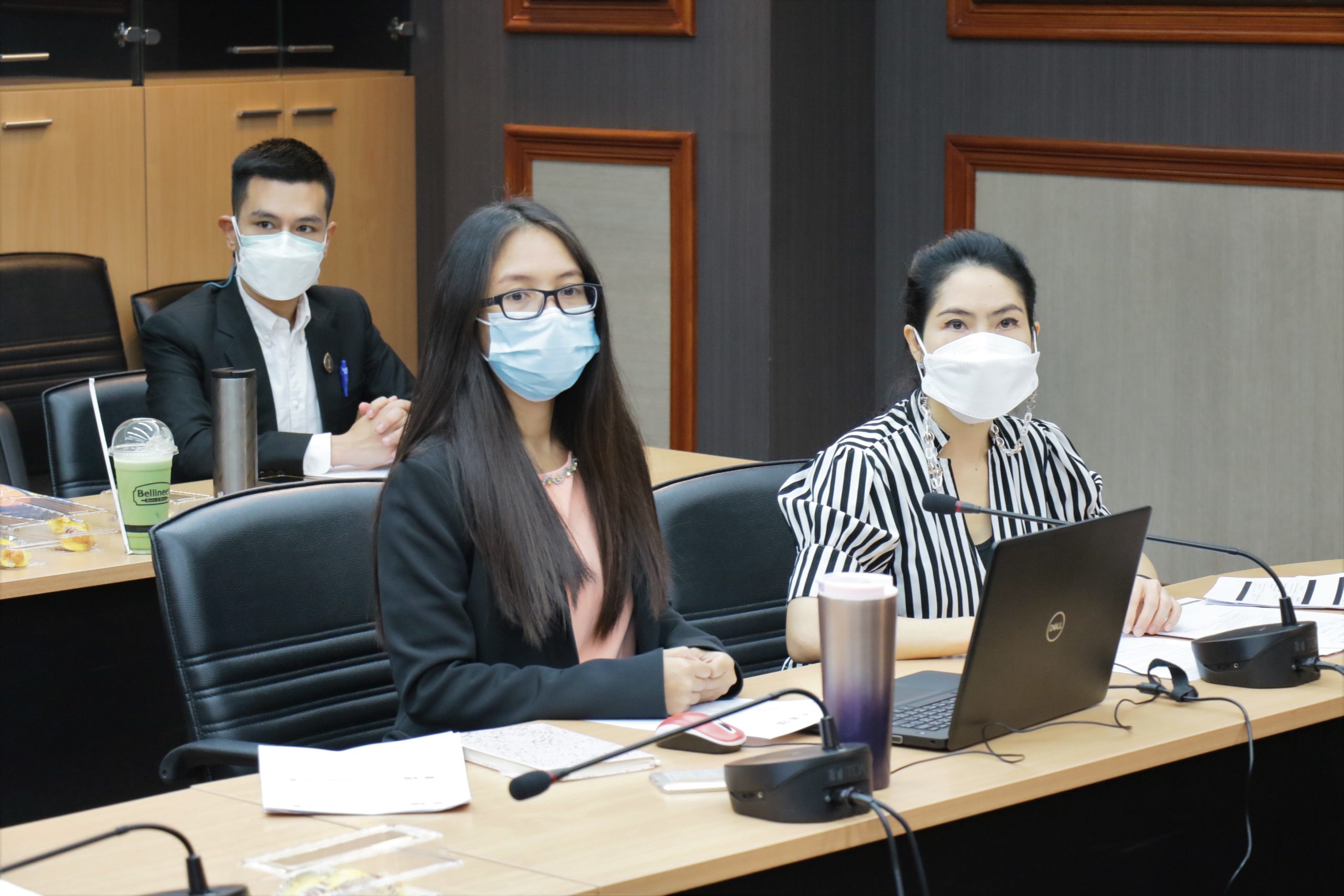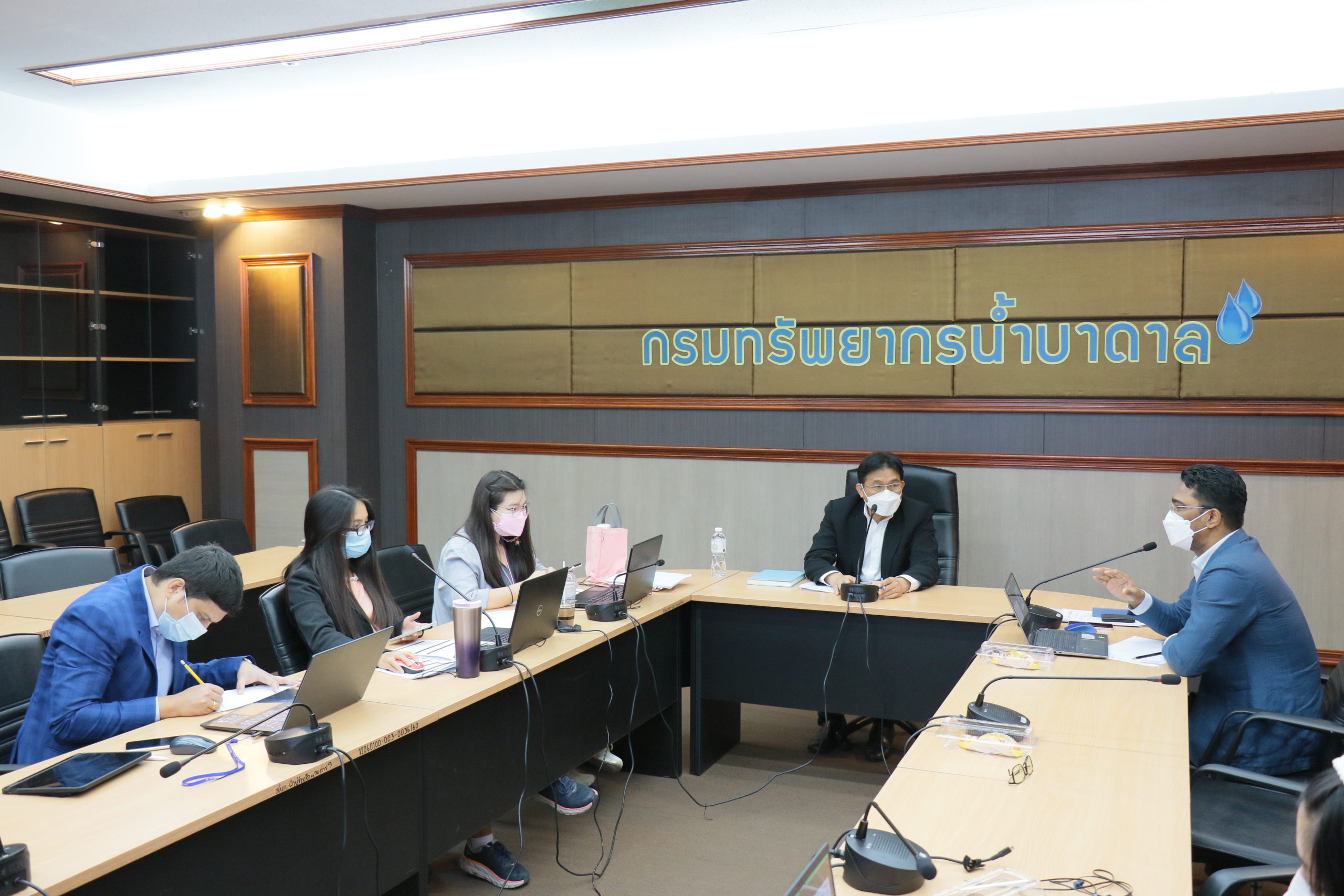
An inception workshop of the project “Assessment of Groundwater Sustainability in the Special Economic Zone of Thailand for Operational Groundwater Management (GISA)” was successfully concluded on December 1, 2021, jointly by the Asian Institute of Technology (AIT) and the Department of Groundwater Resources (DGR), Thailand at via a virtual platform. The project has been funded by Stockholm Environment Institute (SEI) under the SUMERNET 4 All Programme funded by the Swedish International Development Cooperation Agency (Sida). The main objective of the joint-action GISA project is to assess the groundwater sustainability at Tak Special Economic Zone (SEZ) of Thailand for operational groundwater management.
Prof. Dieter Trau, Dean, School of Engineering and Technology, AIT, delivered the opening remarks by extending a warm welcome to all the workshop participants and emphasized the importance of groundwater sustainability under multiple stresses in SEZs. Furthermore, Prof. Trau appreciated the SUMERNET program of SEI Asia Center for the financial support and thanked the Ministry of Natural Resources and Environment (MoNRE) and Department Groundwater Resources (DGR), Thailand, for trusting AIT to conduct the joint action project. Dr. Niall O’Connor, Director of SEI, delivered the welcome remarks introducing the SUMERNET program and highlighted the continued collaboration of SEI with AIT and government partners. He congratulated the joint action team for the collaboration and stressed that the project outputs should be vital for key stakeholders and the wider audience by incorporating them in the key policy documents for sustainable groundwater management in the special economic zones. Dr. Oranuj Lorphensri, Deputy Permanent Secretary, Ministry of Natural Resources and Environment (MoNRE), Thailand and Dr. Alin Chintraruck, Head of International Relations Unit, Department Groundwater Resources (DGR), Thailand, welcomed all the participants on behalf of the joint-action partners and highlighted the importance of the workshop in planning the project implementation and exploring opportunities to improve operational groundwater management practices in SEZs. The project’s overview and the major objective of the workshop, which was to gather feedback on the project design, conceptualize and receive feedback to contextualize the existing Groundwater Sustainability Infrastructure Index (GSII) framework to apply in SEZ and identify opportunities and synergies for a possible collaboration for achieving the project goals was presented by Prof. Sangam Shrestha. He further added that upon completion of the workshop, it is expected that the project objectives, scope, and activities are fine-tuned, the GSII framework is conceptualized, and an outline for its contextualizing is finalized included with identification of key stakeholders for possible collaboration and networking. The first session of the workshop ended with introducing the participants from different institutions.
The second session, chaired by Dr. Thanapon Piman, Senior Research Fellow, SEI, consisted of the presentations on objectives, scopes, and approaches of each of the project’s Work Packages (WPs). Dr. Thi Phuoc Lai Nguyen delivered the project objectives, scope, approach and outcomes, and Dr. S. Mohanasundaram introduced the existing GSII Framework. Dr. Alin Chintraruck from DGR, Thailand, presented the summary of all presentations in the Thai language. Session chair Dr. Piman facilitated the questions and answering session before concluding the second session.
The third session of the workshop included a parallel-group discussion on the three WPs, which was jointly facilitated by project team members from AIT, DGR and Dr. Phayom Saraphiriom, Director of Groundwater Resources Research Institute, Khon Kaen and advisor for the project. Each group got involved in a comprehensive discussion during the session, mainly divided into two parts. The first part consisted of a discussion about the project design and its improvement. The second consisted of a discussion contextualizing the existing GSII framework to apply in SEZ. The third consisted of a discussion for exploring opportunities for collaboration. A group presentation followed this session with a plenary discussion facilitated by Mr. Saurav KC, Doctoral Candidate, WEM/AIT and project member. The summary from the plenary discussion are:
• Clarification of the target group in the project design for survey planning and disseminated information.
• Identification of vulnerable and marginalized groups in the study area and fixing the study zone with consultation meeting at the project site.
• Improvement in the regulatory framework component with consideration of new GSII framework indicators such as groundwater contamination, land-use change, geologically based indicators, the process of stakeholder’s participation, access to information at a different scale, operational structure of governance and management, ongoing water-saving practices (structural and non-structural) etc.
• Collaboration with ONWR, PWA Region-10 and other relevant stakeholders for data, information and exploring government’s master plans in the study area.
In his closing remarks, Prof. Sangam Shrestha thanked the participants for their active participation in shaping the project and appreciated DGR, Thailand, for accepting AIT’s proposal to organize the inception workshop jointly. Furthermore, he added that the project should undertake the suggestions received from the workshop during its implementation phase.

